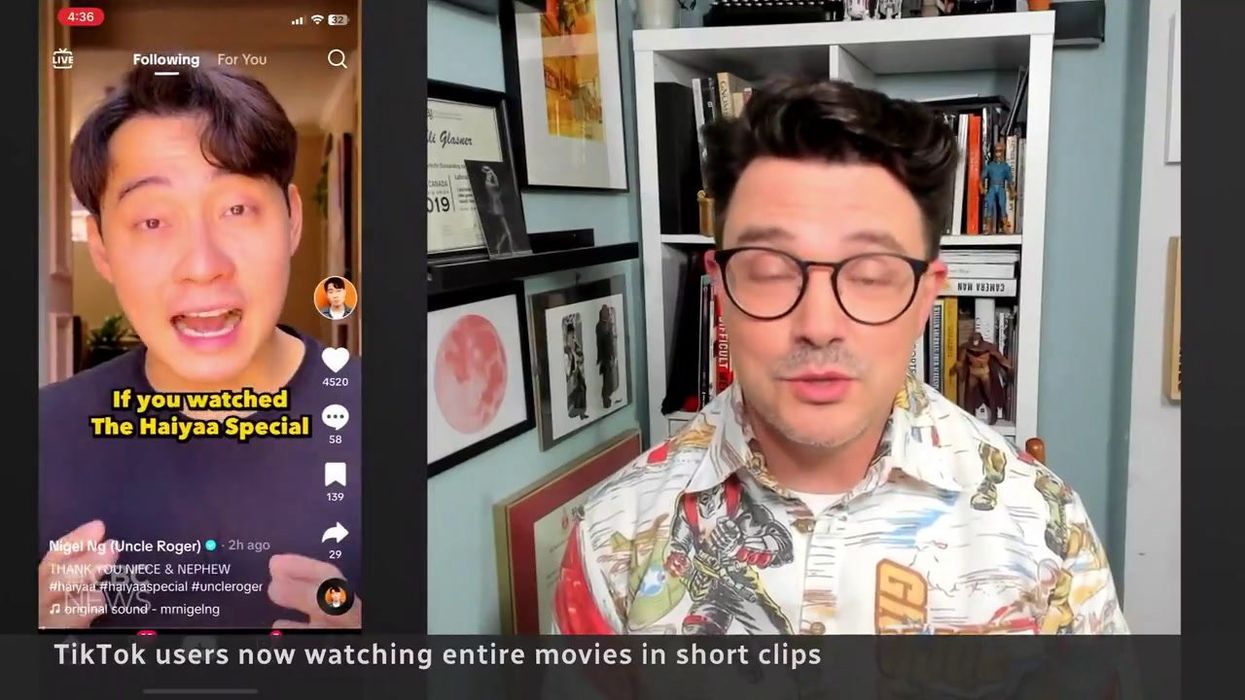Viral
Becca Monaghan
Jun 14, 2023
Is it OK to watch movies in 3-minute chunks on TikTok?
content.jwplatform.com
A new study has reiterated the power of social media, with results revealing that young people are turning to influencers for their daily news.
According to Reuters Institute, Gen Z is swaying towards online personalities over well-established news outlets, with celebrities, influencers and social media personalities overtaking journalists. The study interviewed around 94,000 people from 46 countries, according to Yahoo News.
Interestingly, the shift is more prominent on platforms such as TikTok and Snapchat with a staggering 55 per cent of people getting their news from such apps. This is compared to 33-42 per cent who continue to get it from trusted media organisations.
Jamie Love, CEO and founder of Monumental believes the results are attributed to TikTok's algorithm as it is "specifically designed to cater to our unique content interactions unliked traditional TV news."
Sign up for our free Indy100 weekly newsletter
"TikTok's algorithm tailors what we see based on our interests, ensuring that we only encounter content that truly engages us," he told Indy100. "This personalised approach has made traditional news seem increasingly impersonal and irrelevant to younger users."
While source validation is crucial for any information encountered online, Jamie suggests "we cannot overlook the insatiable curiosity of younger generations — the conscious and well-researched consumers that they are."
He believes that TikTok can be a stepping stone for inspiration for younger users to "embark on further investigations both within and beyond the platform."
Meanwhile, on Twitter and Facebook, media and journalists come out as a top priority with 55 per cent and 43 per cent of users relying on mainstream news outlets online.
"While mainstream journalists often lead conversations around news in Twitter and Facebook, they struggle to get attention in newer networks like Instagram, Snapchat, and TikTok," the study explains. "A strong supply of accurate, well-funded, independent journalism remains critical, but in many of the countries covered in our survey, we find these conditions challenged by low levels of trust, declining engagement, and an uncertain business environment."
While social media platforms continue their efforts to try and weed out inaccurate, harmful, and misleading content, Jamie believes that spotting and flagging such content may ultimately fall heavily on the users.
"The age-old battle between free speech and over-policing takes centre stage here, raising the question: Who should shoulder the responsibility— the platform, the parents, or the government?" he said.
From Jamie's perspective, "education and awareness" should be prioritised before diving into any social media platform.
"By cultivating a generation of vigilant, discerning, and well-informed users, we can navigate this digital landscape with conscious intent and become the masters of our own online experiences," he adds.
Lead author Nic Newman opened up about how young people are moving away from traditional politics and public news affairs.
Instead, it's "anything new that is happening in any walk of life: sports, entertainment, celebrity gossip, current affairs, culture, arts, technology..."
He mentioned the likes of Matt Welland, who uses TikTok to discuss the news with his 2.8 million followers. "Or it could be a celebrity like a footballer talking about a topical news event," he went on to tell AFP, including Marcus Rashford and his 2020 campaign for free school meals.
Interestingly, despite video content seemingly dominating the social sphere – given the TikTok phenomenon – people still prefer to read the news over watching it.
The research revealed that the majority of online users opt for text as it "provides more speed and control in accessing information."
Meanwhile, in a few countries including the Philippines and Thailand, people said they preferred getting their news through video.
Have your say in our news democracy. Click the upvote icon at the top of the page to help raise this article through the indy100 rankings.
Top 100
The Conversation (0)














